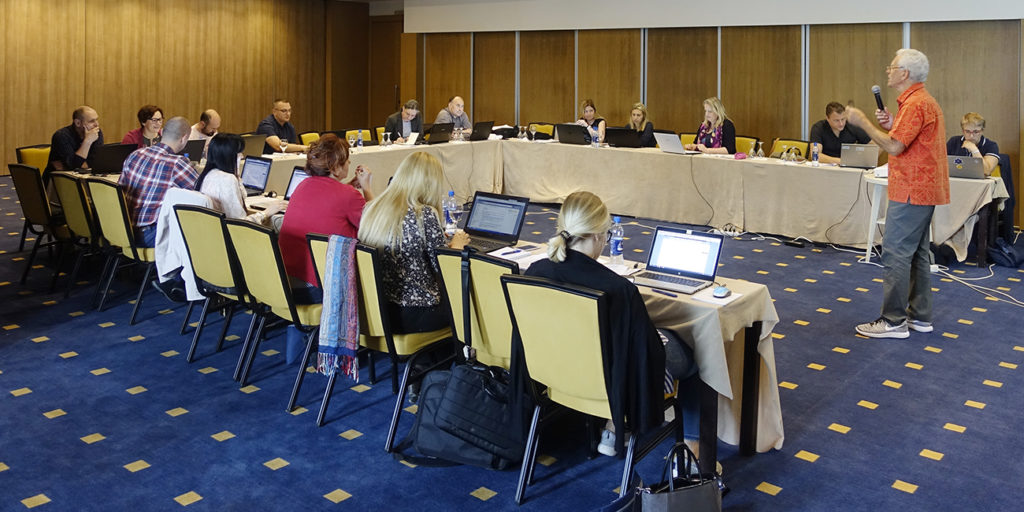Apply now for grants that support the use of Research4Life in low-income countries

The Medical Library Association (MLA) has opened the call for applications for the MLA Librarians without Borders® / Elsevier Foundation / Research4Life Grants. Applications will be open until 1 December 2019. Funded by the Elsevier Foundation, the grants support training activities that promote the use of the scientific resources available through Research4Life in low-income countries. Grants range from USD 1,500 to USD 5,000 and are distributed in June. Funded projects should be completed by 31 December 2021.
Some example projects to get inspired: increasing mechanisms to promote the Research4Life programs and their training resources, developing new training material, conducting workshops at you institution, or organizing an online course on Research4Life targeting specific audiences.
Eligibility
- Applicants are required to hold a professional library or information science qualification, but in the case of exceptional candidates this criterion may be waived. You will have to include a transcript or copy of your diploma.
- Applicants must be either:
- currently employed in a health, science or law library or a related scientific or legal information organization;
- retired from such establishments;
- individuals in academic positions revolving around ‘information science’;
- from non-governmental agencies focusing on Research4Life disciplines.
- Applications will be accepted from previously funded individuals or institutions.
- Individuals and/or institutions are eligible to submit proposals.
- Applicants are not required to be members of MLA.
Terms
- Grant recipients are required to complete project within 15 months after the notification of the award.
- Grant recipients agree to submit an interim (nine month) and final report to MLA’s Librarians Without Borders®. The final report should focus on the results of the project and will be posted on the LWB Blog. It may also be published through other channels related to health or science.
- More than one grant may be offered in a year.
- To maximize the impact of the grant funds in low-income countries, MLA will not accept institutional overhead fees or indirect costs in project budgets.
- Projects that require travel will be reimbursed only for actual travel after the trip; expense statements and receipts must be submitted to MLA.
- Grant funds (excluding travel) are distributed in June following the MLA annual meeting.
- If there are no appropriate applications, as reviewed by the jury, the association may elect not to fund a grant or multiple grants in a given year.
- MLA will acknowledge applications upon receipt via email.
Application checklist
The application entails a detailed proposal of maximum six single-spaced pages, and, if applicable, a spreadsheet and timeline appendices. The proposal must include the following:
- The objectives of the project in the context of Hinari or Research4Life training activities;
- A project timeline that clearly notes the proposed activities to be conducted within fifteen months;
- Detailed budget information, including additional funding sources (Note: allowable expenses depend on the project submitted. In the case of a workshop, it can include international travel and a per diem fee for a trainer and other costs associated with the project.);
- Information about how the project will be measured and evaluated during and, if possible, after completion;
- Plans for reporting on the project, such as an MLA annual meeting paper or poster or a publication in a health or science outlet, for example a relevant journal;
- A current curriculum vitae of the applicant or principal contact;
- Academic transcripts or a copy of the diploma of the applicant or principal contact;
- Three references letters from individuals not related to the applicant that include observations regarding the project’s feasibility;
- Additional documentation related to the applicant’s qualifications to complete the project;
- In-kind contributions or additional direct funding from the applicant’s institution or organization and/or the names of key participants besides those submitting the grant.
Apply now!
Find out more and apply for a grant on the MLA website (scroll down to ‘Ready to Submit an Application?’). Once saved, the application remains open for changes or additions until 1 December 2019, 11:59 p.m. (CDT). Note: incomplete and late submissions will not be considered!
Questions? Contact MLA’s grants coordinator.





